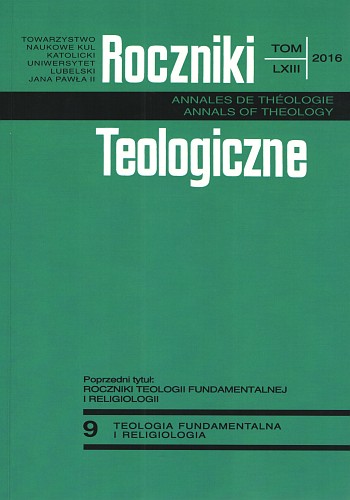The Via Ascendens Method and its Significance for Ecclesiological Studies. A Latin American Case Study
The Via Ascendens Method and its Significance for Ecclesiological Studies. A Latin American Case Study
Author(s): Andrzej PietrzakSubject(s): Christian Theology and Religion, Theology and Religion, Systematic Theology
Published by: Towarzystwo Naukowe KUL & Katolicki Uniwersytet Lubelski Jana Pawła II
Keywords: fundamental theology; ecclesiology; methodology; Latin America
Summary/Abstract: The article discusses the issue of research methodology in the field of fundamental ecclesiology. The author draws attention to the importance and need to update the via ascendens method, especially its variants, which examine aspects of the life of the Church. Taking Latin America as an example, he analyses five selected aspect of the Church’s life from within in relation to ecumenism and non-Christian religions, to religiously indifferent and atheism, and in relation to issues concerning social life and culture. By using SWOT heuristic tools, he discusses their exemplary strong and weak aspects, including opportunities and threats. In the last part, taking into account the Latin American ecclesial experience, the author, first, indicates the need to broaden the subject of fundamental theology concerning the problem of the unfulfilled expectations of those who leave the Church. Next, he stresses the importance of carrying out the mission as the source and purpose of theological research. Finally, he draws attention to the fact, that there are important questions in theology, which concern different social groups.
Journal: Roczniki Teologiczne
- Issue Year: 63/2016
- Issue No: 09
- Page Range: 95-110
- Page Count: 16
- Language: English

